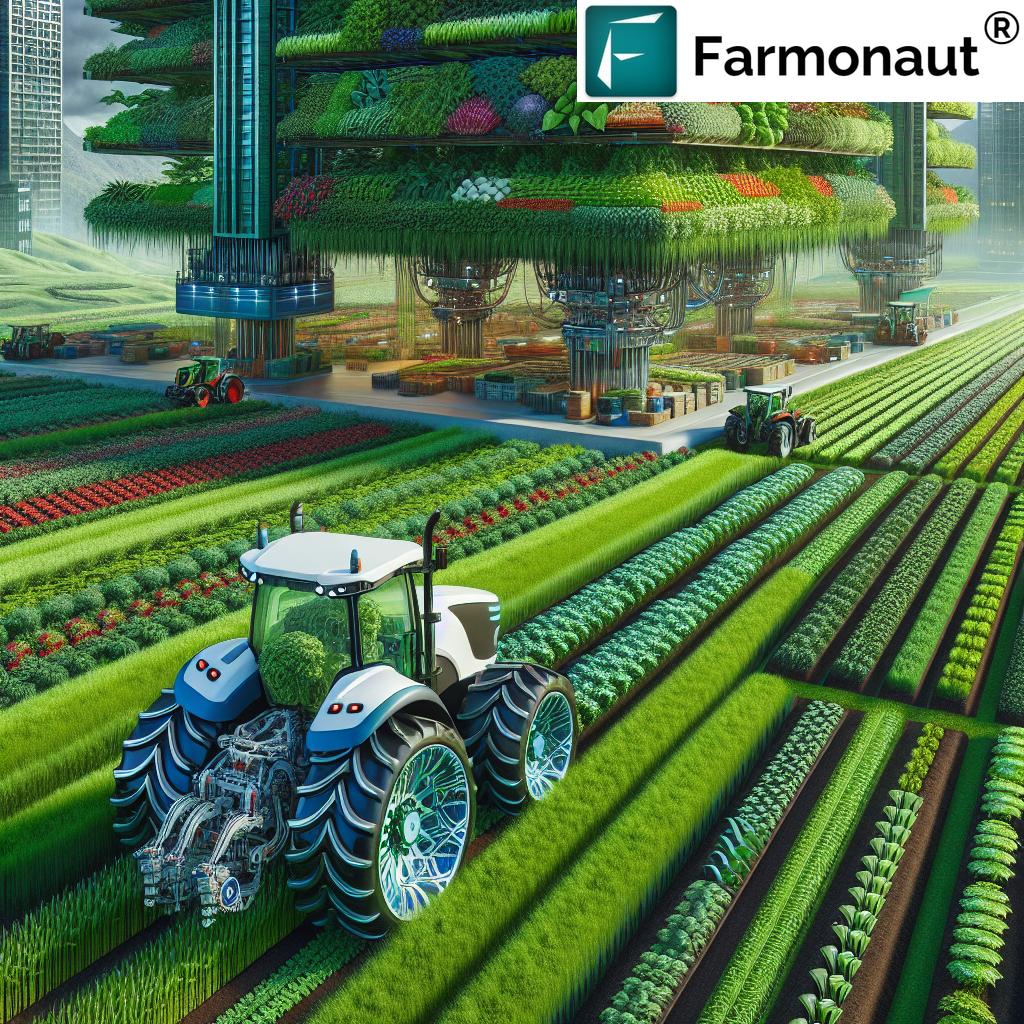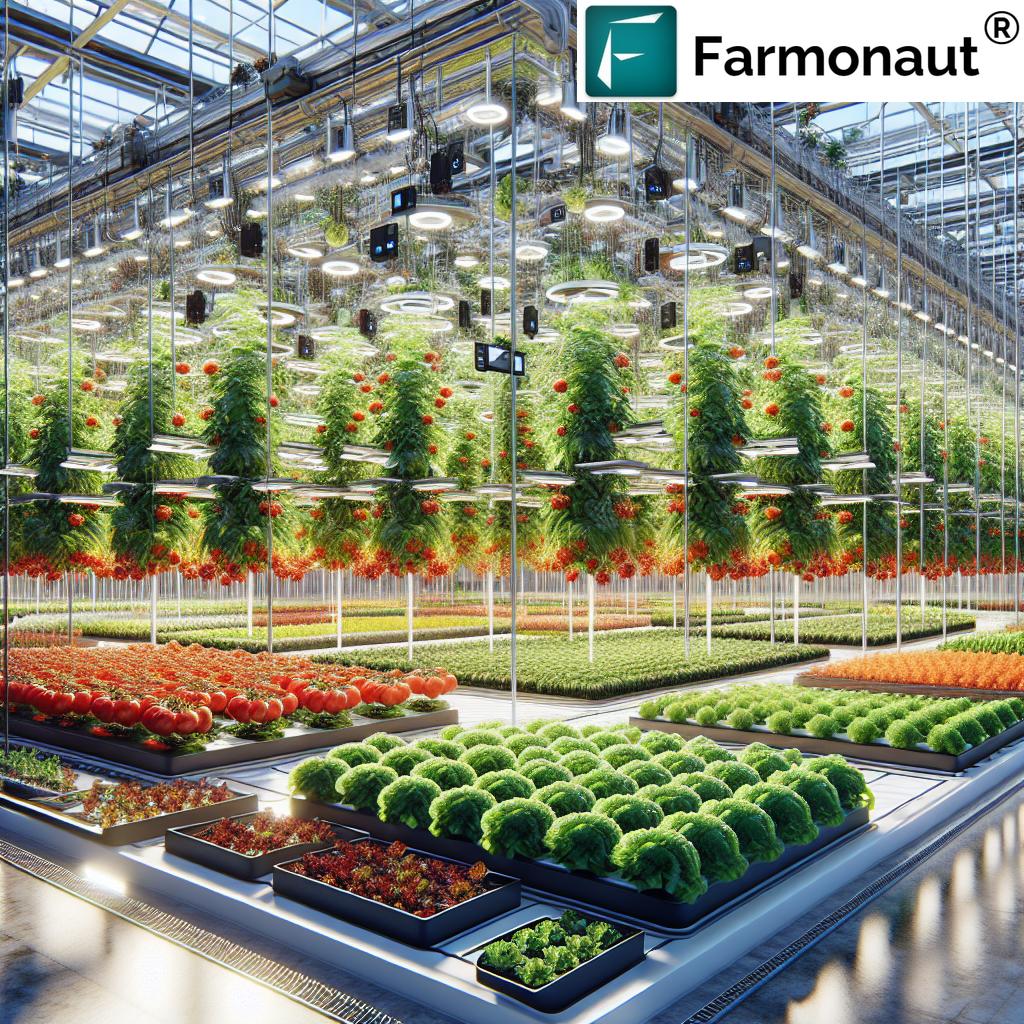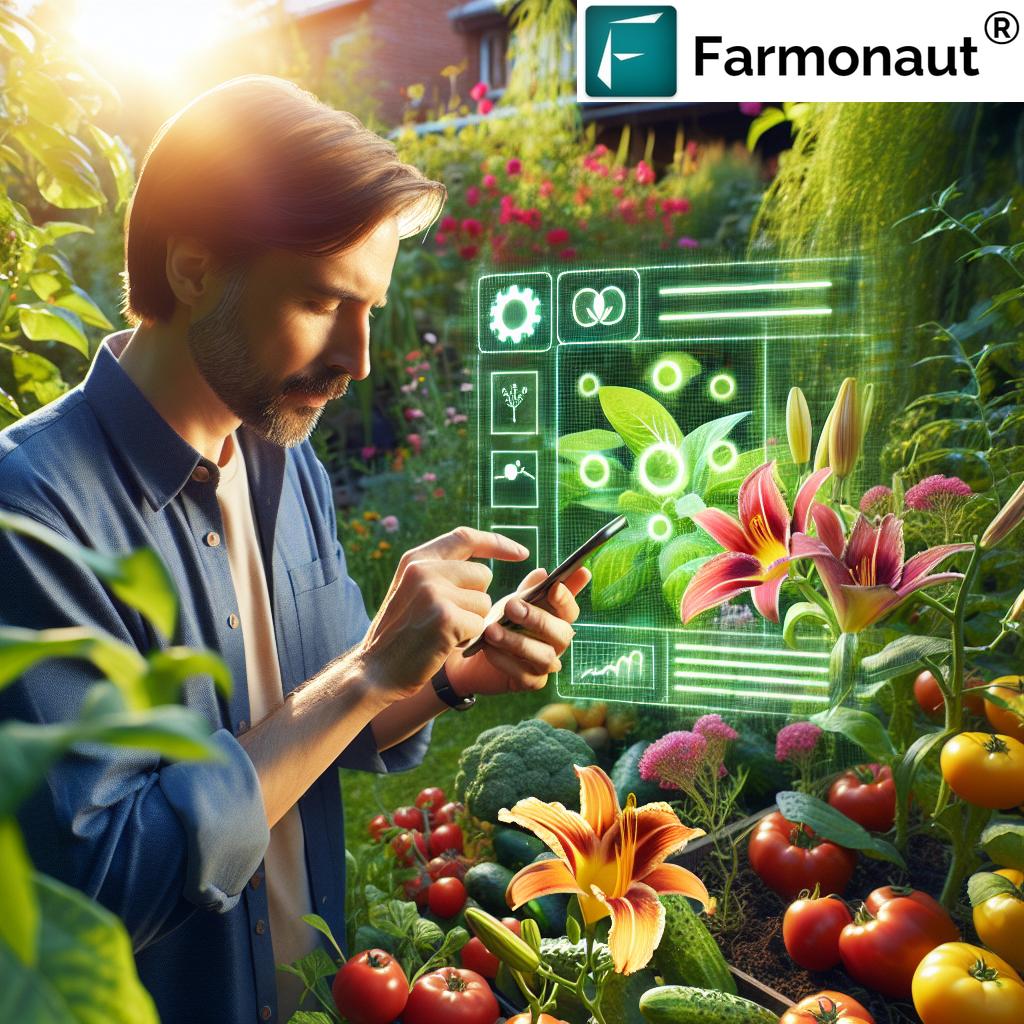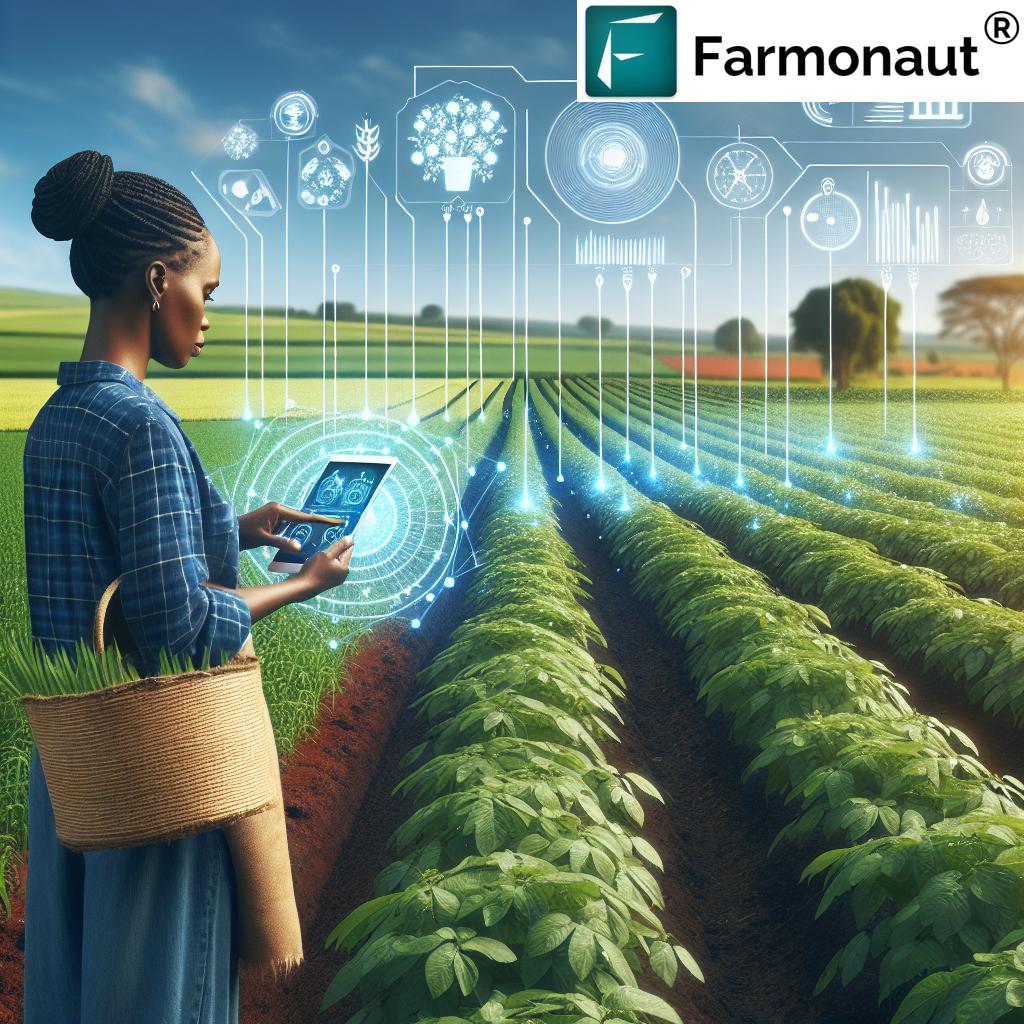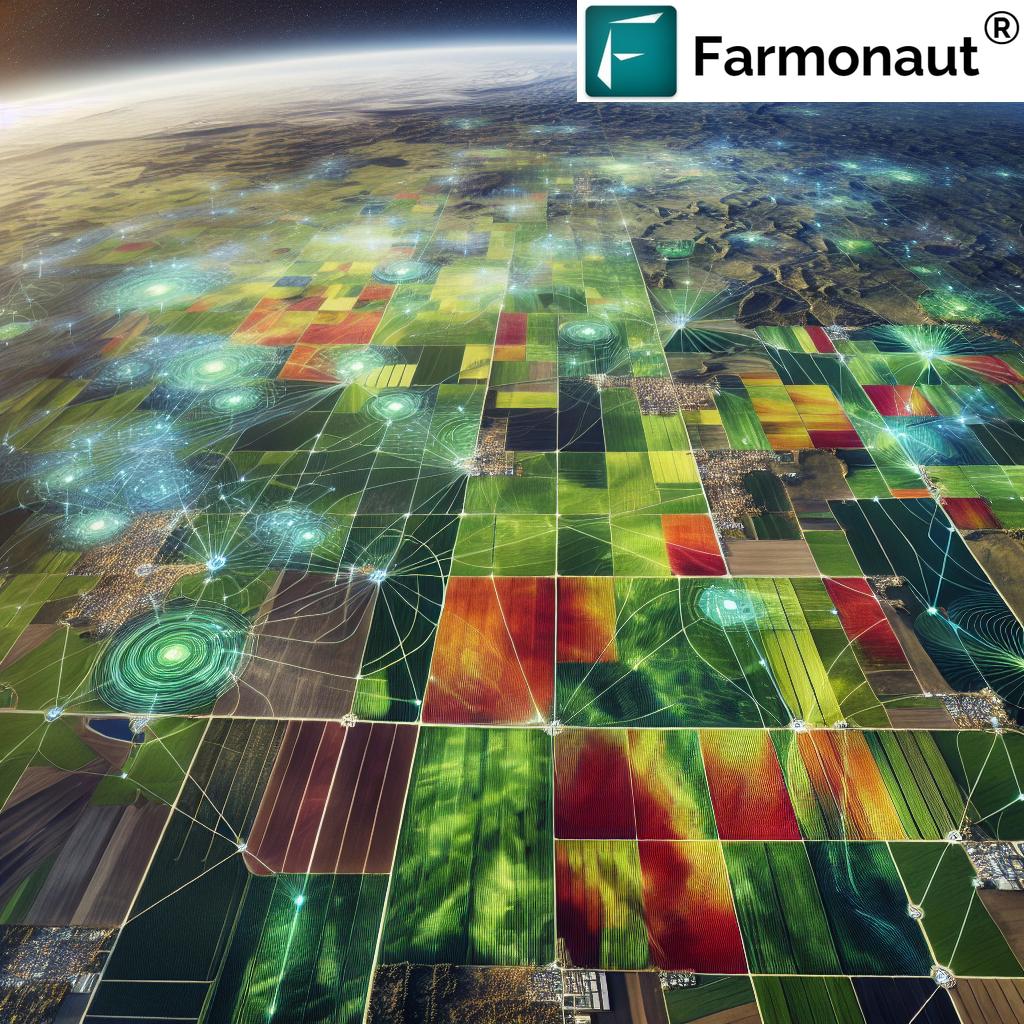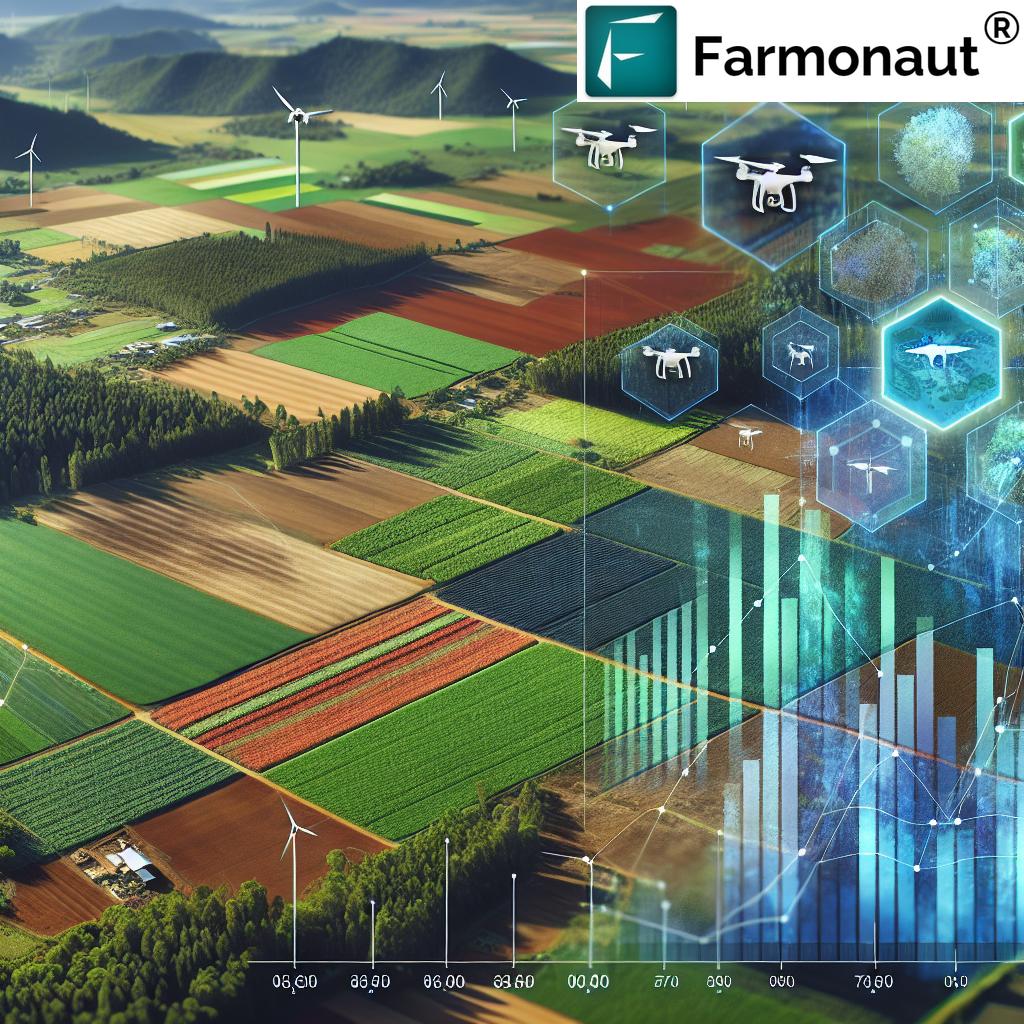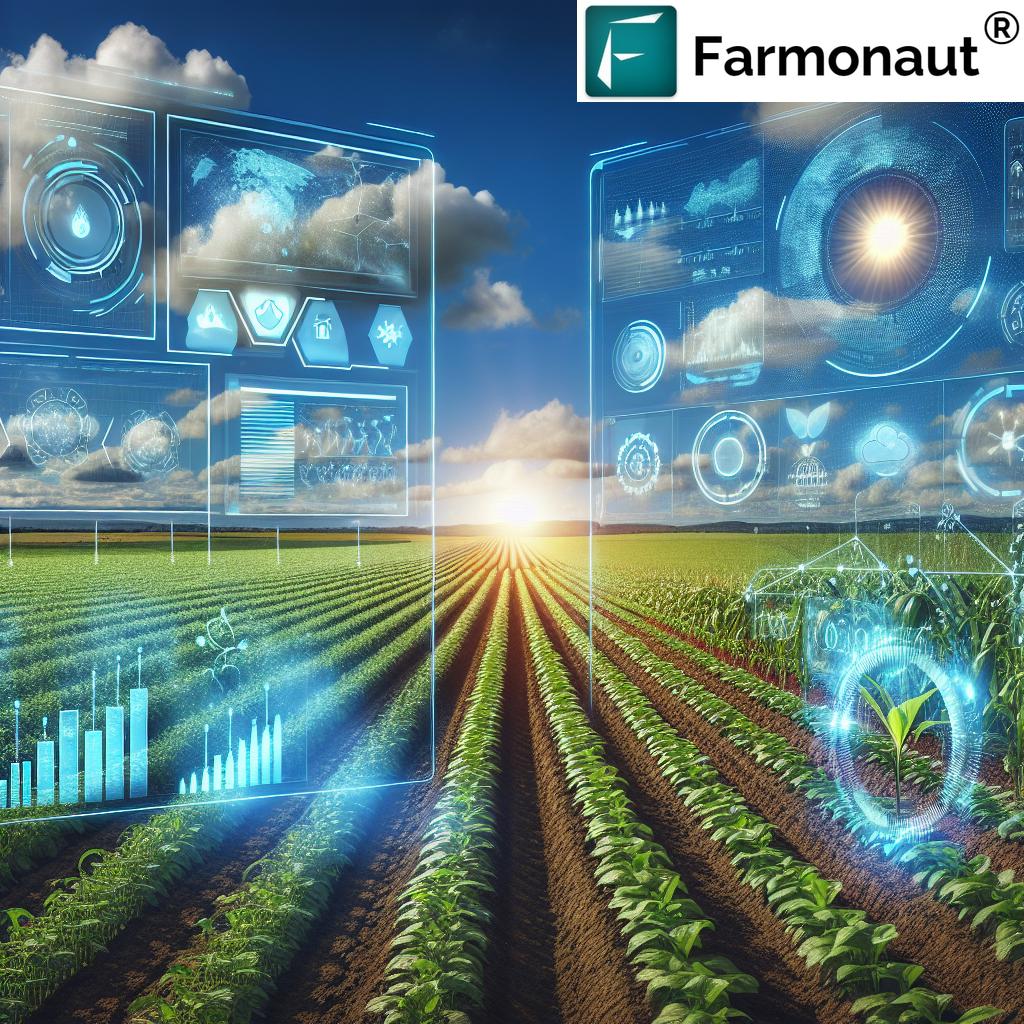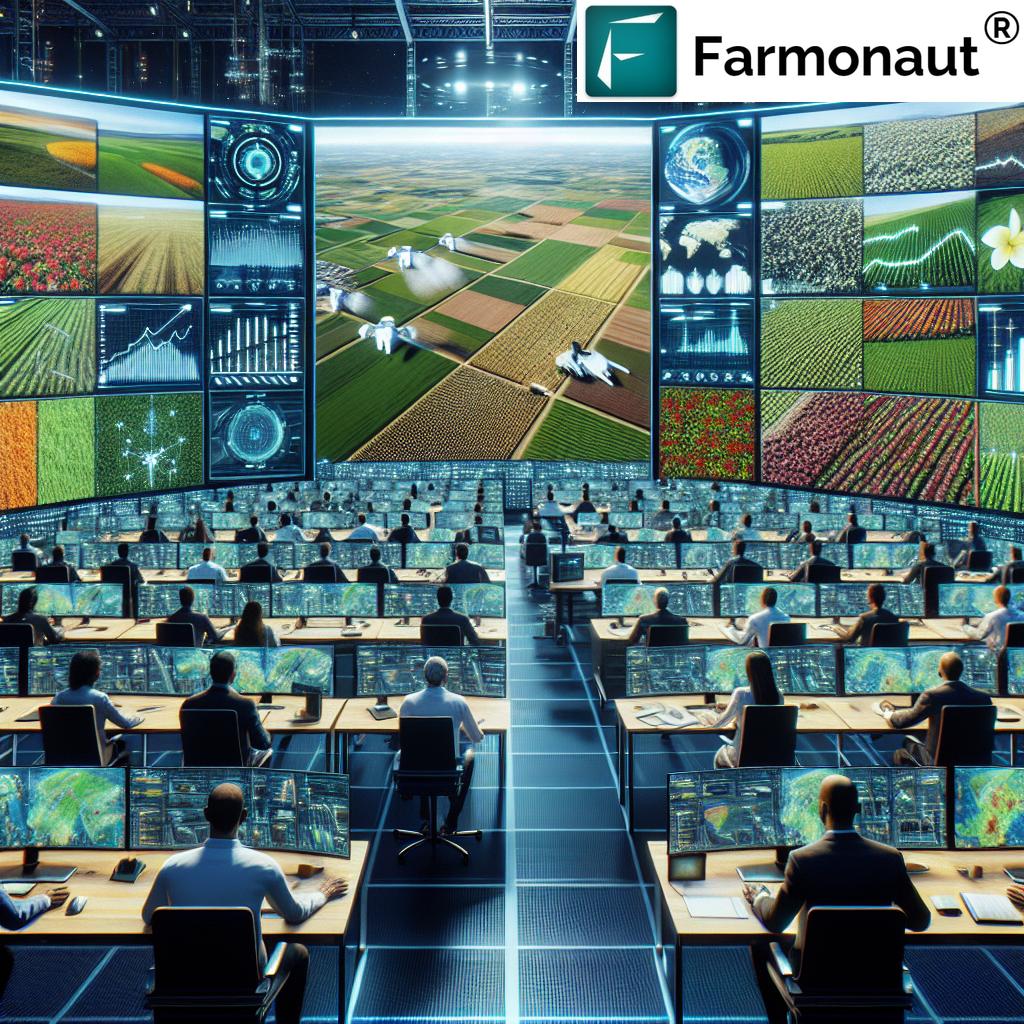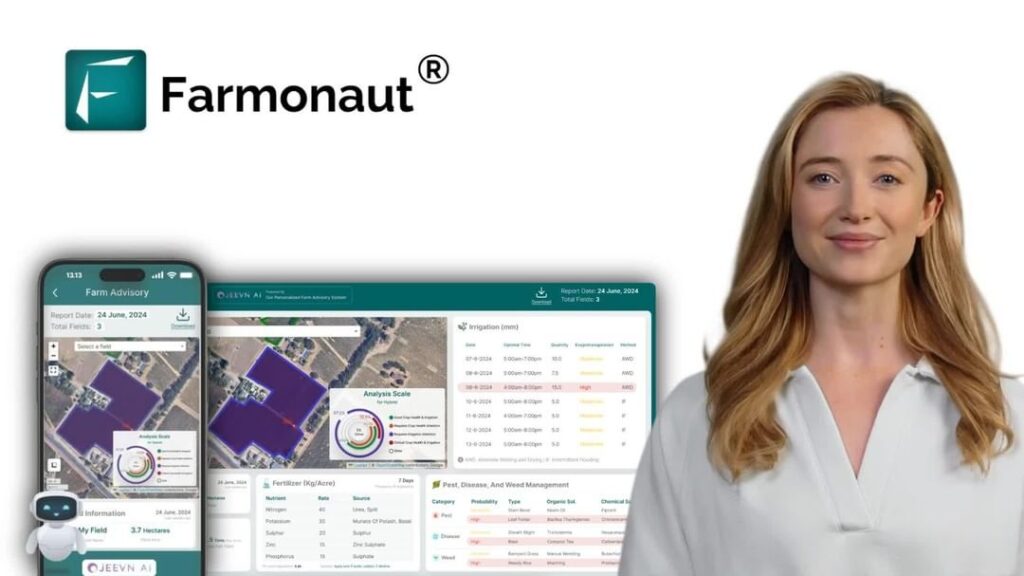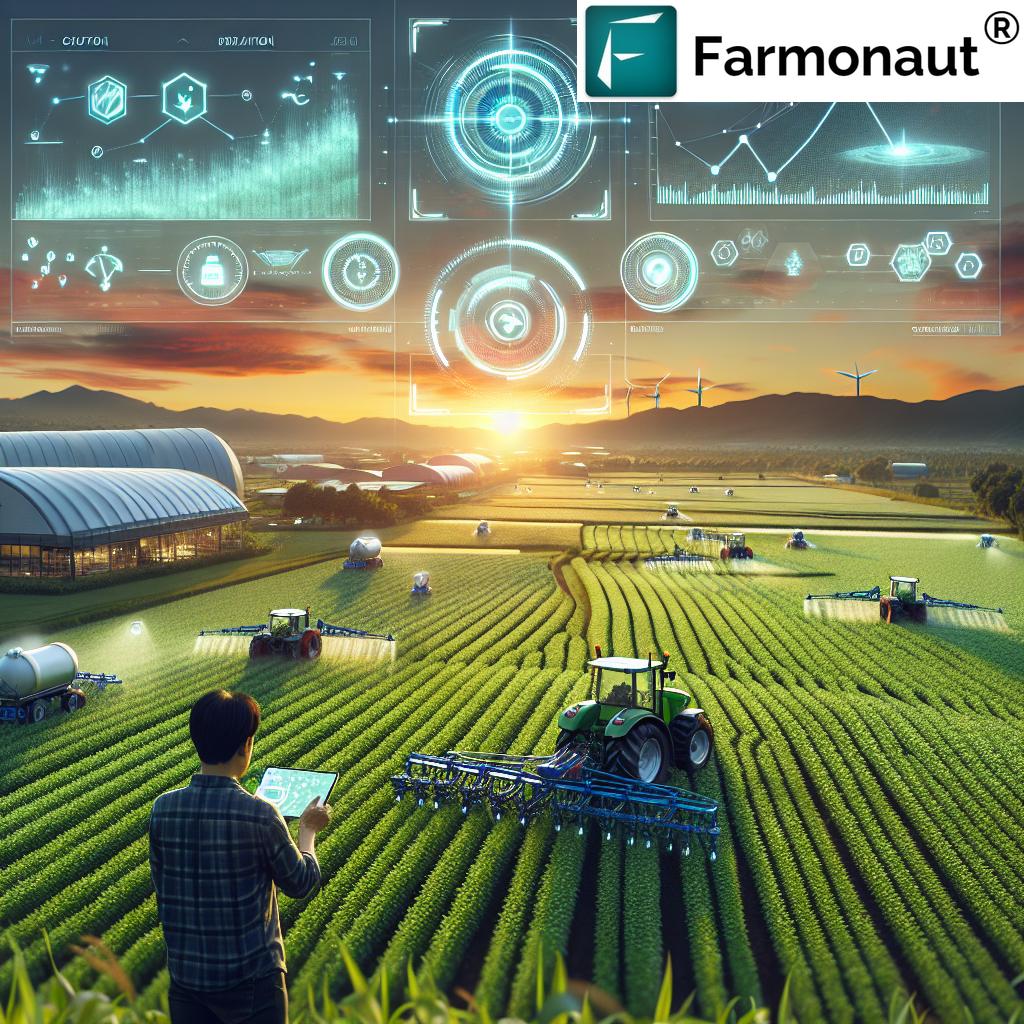Agtech Startups: 7 Game-Changers Farmers Need Now
“Over 70% of agtech startups focus on precision agriculture, revolutionizing how farmers manage crops and resources.”
Introduction: The Agtech Revolution
As the global population approaches an estimated 9.7 billion by 2050, the agriculture and forestry sectors stand at a pivotal crossroads. The simultaneous, urgent need to increase food production while mitigating climate change and preserving natural resources defines our era. This is where agtech startups—driven by technology and innovation—step into the spotlight.
Agricultural innovation has become the linchpin for improving farm productivity, reducing environmental impact, and addressing food security challenges worldwide. By leveraging transformative technologies such as artificial intelligence (AI), satellite data, blockchain, and robotics, agtech startups are boldly rewriting what’s possible in farming—from precision agriculture in the United States and India, to vertical farms in urban Australia, and beyond.
In this comprehensive exploration, we will discover how the top 7 agtech startups are catalyzing the next leap in farm automation technologies and sustainable farming practices. Along the way, we highlight the unique contributions of Farmonaut, a global leader in affordable, data-driven precision agriculture technology, satellite monitoring, and blockchain in agriculture.
The Rise of Agtech Startups & Drivers of Innovation
Agtech startups are emerging as the true catalysts of a new green revolution. Fueled by advanced technology and a passion for sustainability, these ventures are not only innovating but also democratizing agricultural solutions. Key priorities for these startups include:
- Boosting efficiency across farms using AI, automation, and data-driven tools
- Reducing the environmental footprint of farming through sustainable practices
- Ensuring food security for a growing global population facing resource scarcity
- Facilitating transparency and trust in supply chains leveraging blockchain technology
- Equipping farmers with actionable intelligence to increase crop yields, manage water, and optimize inputs
- Enabling access to financing and insurance via data-led assessment of risk and productivity
Today, agricultural technology adoption is propelled by easy-to-use web and mobile platforms, open-source projects, satellite APIs, and scalable subscription models. More than ever, farmers of all sizes are tapping into precision agriculture technology—once the preserve of industrial giants.
Key Areas of Agtech Innovation Reshaping Farming
Let’s delve into the core areas of innovation where agtech startups are creating transformative solutions for farmers and forestry managers:
- Precision Agriculture
- Vertical Farming
- Open-Source & Accessible Technologies
- Robotics & Farm Automation
- Blockchain-Powered Transparency
- Satellite-Driven Crop Monitoring
- Climate Resilience & Sustainability Solutions
Each of these pillars addresses unique challenges in agriculture, from labor shortages to environmental management, traceability to resource optimization, making them vital in a rapidly changing world.
“Sustainable farming practices adopted by agtech innovators can reduce water usage by up to 50% in key regions.”
Comparison Table of Top 7 Agtech Startups Revolutionizing Farming
| Startup Name | Core Technology/Innovation | Main Application | Location | Estimated Adoption Rate | Sustainability Impact | Notable Achievements/Funding |
|---|---|---|---|---|---|---|
| Farmonaut | Satellite Monitoring, AI Advisory, Blockchain Traceability | Crop Health Monitoring, Sustainability Tracking | India (Global reach) | ~10% (across monitored hectares globally; rapidly growing) | Up to 20% improved resource efficiency, full compliance on traceability | Affordable mobile/web solutions, robust API offering |
| FarmWise Labs | AI, Computer Vision, Automated Mechanical Weeders | Weed Removal (without chemicals) | USA | 2% (large commercial vegetable farms) | ~70% reduction in herbicide use | Innovative Titan FT-35 robot |
| Stacked Farm | Automated Vertical Farming System | Indoor Crop Cultivation – Leafy Greens/Herbs | Australia | ~1% (urban/controlled environment farms) | Uses 95% less water vs. conventional farming | First fully automated vertical farm in Australia |
| FarmBot | Open-Source CNC Precision Agriculture Machine | Home & Community Farming Automation | USA (Global DIY Community) | 0.5% (enabling local/small-scale farming) | Increases food self-sufficiency, minimizes input waste |
Global open-access project |
| Solinftec | Solar Robotics, AI, Real-Time Plant Health Analysis | Autonomous Crop Monitoring | Brazil | ~3% (large-scale row crop farms) | ~30% reduction in fertilizer/pesticide use | Solix Ag Robotics platform |
| Hectare Agritech | Blockchain Trading Platforms | Digital Grain & Livestock Markets | United Kingdom | 1% (farmers using direct-ag trading) | Shorter supply chains; lowers food waste | Top-rated agtech market platform |
| Regrow | Satellite Data, ML, Soil/Crop Carbon Modeling | Emission Monitoring, Sustainability Reporting | USA | 2% (sustainability-focused agribusinesses) | Enables GHG-reducing strategies for staple crops | Major impact on corporate supply chain GHG reporting |
1. Precision Agriculture Technology: Managing Fields with Data
Precision agriculture is the cutting edge of modern farming innovation—and one of the primary focus areas for agtech startups. By using data-driven technologies like satellite imaging, AI analytics, and sensor networks, precision agriculture enables farmers to:
- Monitor and manage field variability at the micro-level
- Optimize the use of inputs such as water, fertilizer, and pesticides
- Detect crop diseases, pest outbreaks, and emerging issues early
- Make informed decisions to increase crop yields and quality
- Reduce environmental impact by minimizing over-application of chemicals
Solutions like Farmonaut’s real-time satellite-based crop health monitoring deliver up-to-date maps of vegetation health (NDVI), soil moisture, and input requirements, accessible via Android, iOS, web app, and API. Farmers, agribusinesses, and researchers can precisely allocate resources, preserve natural resources, and reduce water wastage.
FarmWise Labs, for example, uses AI and computer vision to power automated weeding robots (like the Titan FT-35) that can identify and remove weeds without chemicals—showcasing how precision agriculture technology now enables sustainable farming practices at scale.
2. Vertical Farming Solutions: Efficiency in Urban & Water-Scarce Environments
Vertical farming leverages controlled indoor environments to cultivate crops in stacked layers, utilizing automated systems to maximize efficiency and output. Key benefits of vertical farming solutions include:
- Reducing land footprint by producing food in urban areas and on marginal lands
- Mitigating water scarcity with recirculating hydroponic/aquaponic systems using up to 95% less water than conventional methods
- Achieving year-round crop production, independent of climate constraints
- Enabling ultra-local, fresh food production for cities
- Minimizing the use of pesticides and chemicals
Startups like Stacked Farm in Australia are deploying fully automated vertical farms for herbs and leafy greens, setting a benchmark for urban agriculture. Vertical farming is especially impactful in areas with limited arable land, water, or high urbanization, offering a sustainable food production alternative.
3. Open-Source Farming Projects: Democratizing Technology Access
The rise of open-source farming empowers more people to participate in sustainable food production. Projects like FarmBot deliver open-source CNC farming machines, providing detailed documentation and software that enable individuals, schools, and communities to automate small farm plots from seeding to irrigation and weeding.
- Reduces barriers to entry for precision farming tools
- Encourages innovation through shared designs, data, and local adaptation
- Helps promote self-sufficiency, urban agriculture, and local crop production
- Paves the way for future, decentralized food systems
By democratizing access to agricultural automation, open-source projects are especially valuable for small-scale and community farmers looking to adopt modern agtech innovations affordably.
4. Robotics in Agriculture & Farm Automation Technologies
Automation is transforming farm labor, with robotics in agriculture providing real-world solutions to persistent workforce challenges and resource constraints. Modern agtech startups are integrating AI and solar energy into their robotics designs, delivering key benefits:
- 24/7 field monitoring without manual intervention
- Real-time data collection for plant health, pest management, and resource assessment
- Precision execution of repetitive tasks like weeding and spraying
- Reduced dependence on chemical inputs
- Lower operational costs and improved safety
Solinftec’s Solix Ag Robotics platform exemplifies this trend. Their autonomous robots, outfitted with solar panels and advanced sensors, analyze crops for health, nutrition, and pest damage—empowering farmers to optimize crop yields and manage resources more efficiently.
Farmonaut’s Fleet Management module lets agribusinesses optimize their deployments of tractors, harvesters, and drones, reducing downtime, inefficiencies, and fuel use on every hectare.
5. Blockchain in Agriculture: Transparency from Farm to Fork
Blockchain technology is redefining transparency and trust in agricultural supply chains. By providing a decentralized, tamper-proof digital ledger, blockchain in agriculture assures that every step—from the farm gate to the consumer’s plate—is verified and traceable.
- Hectare Agritech delivers blockchain-based platforms for grain and livestock trading, allowing direct sales, fast payments, and reduced fraud for farmers
- Farmonaut’s product traceability system secures data on crop origins, transport, and handling—essential for compliance, food safety, organic certification, and boosting consumer trust
- Shorter, transparent supply chains help reduce food loss and waste
For corporate growers, food processors, and retail brands, blockchain delivers compliance-ready, transparent records—while farmers and consumers gain confidence in product origins and farming practices.
Impact on Sustainability and Climate Change in Agriculture
Sustainability is the cornerstone of today’s agtech innovation. Startups are leveraging data and technology to help mitigate climate change and reduce greenhouse gas emissions across all types of farming systems.
- Regrow uses satellite data, machine learning, and soil modeling to quantify carbon emissions from crops (like rice)—helping businesses set and track emission reduction targets.
- Farmonaut’s carbon footprinting solution empowers agribusinesses to monitor and report emissions in real time, facilitating climate-smart land management and compliance.
- Stacked Farm and similar vertical farming solutions use dramatically less water and optimize energy use per food unit produced—critical for future food security in water-scarce regions.
For farmers, these technologies mean lower input costs, new revenue from climate programs, and enduring resilience against weather shocks and resource depletion.
Farmonaut: Driving Precision Agtech Accessibility Globally
Farmonaut, as a pioneering agricultural technology company based in India but serving a global audience, stands apart for making precision agriculture technology affordable, mobile-accessible, and data-driven. Let’s examine how Farmonaut delivers transformative value to diverse agriculture sectors using advanced farm automation technologies:
- Satellite-Based Crop Health Monitoring: Through multispectral images and NDVI analytics, Farmonaut reveals vegetation (crop) health, soil moisture, nutrient needs, and more, via mobile/web apps and API integration.
- AI-Driven Jeevn Farm Advisory: Combines real-time weather forecasts with satellite data, providing personalized crop management advice for increasing crop yields and efficiency.
- Blockchain-Powered Traceability: Farmonaut secures every step in the journey from field to consumer, crucial for food brands, exporters, and sustainability reporting. Learn more about Farmonaut Traceability.
- Resource & Fleet Management: Advanced tools for fleet optimization, machinery safety, vehicle cost control, and field logistics improve the bottom line for progressive farms and agribusinesses.
- Carbon Footprinting: Satellite-powered, Farmonaut’s carbon footprint tracking supports climate programs and sustainable supply chain initiatives.
- Affordable Subscriptions, Mobile Apps, APIs: Designed for individual farmers, large operations, and governments, Farmonaut offers web, Android, iOS, and developer API access at disruptive pricing.
- Financial Verification: Farmonaut enables banks and insurers to leverage independent satellite verification for crop loans and insurance, reducing fraud and expanding finance for underserved farmers.
For more on Farmonaut’s advanced large scale farm management—ideal for governments and corporate operations—visit their Agro-Admin App page.
Whether you manage a smallholder farm or a national crop monitoring scheme, Farmonaut’s scalable suite brings cutting-edge agtech within everyone’s reach.
Agtech Startup Challenges & the Future of Agricultural Innovation
Despite phenomenal advancements, agtech startups face a unique set of challenges in scaling their impact across the globe:
- High capital requirements to develop, test, and deploy new technologies
- Regulatory hurdles around food safety, data, and land use
- Bridging the adoption gap among smallholder and traditional farmers
- Ensuring affordability and accessibility of innovations to all farm sizes
- Continuous farmer education and technical support for new digital systems
- Addressing localization needs (language, crop variety, climate, infrastructure)
The future of agtech will be defined by integrated ecosystems where startups, legacy companies, governments, and researchers work in tandem—supporting more sustainable, productive, and resilient food systems around the world.
We are at the threshold of a transformative agricultural revolution where precision, transparency, and sustainability go hand-in-hand. By championing agtech innovation and lowering barriers to adoption, we move closer to solving some of humanity’s most critical challenges in agriculture, food, and climate.
Frequently Asked Questions (FAQ)
What is an agtech startup?
An agtech startup is a new or emerging company focused on developing and implementing advanced technology solutions in the agriculture sector. These startups use innovations such as AI, blockchain, satellite data, and robotics to boost productivity, reduce environmental impact, and support sustainable farming practices.
How does precision agriculture technology benefit farmers?
Precision agriculture uses data and automation to help farmers monitor fields at a detailed level, optimize input use (like water and fertilizer), detect problems early, and make real-time decisions for increasing crop yields and reducing waste. This leads to higher profits and improved sustainability.
How do vertical farming solutions help with climate resilience?
Vertical farming allows crops to be grown indoors year-round, using less land and water while controlling temperature, humidity, and light. This approach protects against extreme weather, reduces water consumption by up to 95%, and can drastically shorten the food supply chain.
What is blockchain in agriculture used for?
Blockchain in agriculture provides a secure, transparent digital ledger for tracking the entire journey of agricultural products from the farm to the store. This ensures traceability, authenticity, and builds trust among farmers, processors, retailers, and consumers.
How does Farmonaut make agtech accessible?
Farmonaut offers affordable, satellite-based monitoring, personalized AI advice, blockchain traceability, and sustainability tracking for farms of all sizes via easy-to-use Android, iOS, web apps, and APIs. Its mobile apps empower individual farmers, while APIs and advanced modules serve large businesses, governments, and research organizations.
Which are the main sustainable farming practices driven by agtech startups?
Key sustainable farming practices enabled by agtech include: precise irrigation/fertilization, indoor/vertical cultivation, automated weeds management, carbon footprinting, digital supply chain traceability, and open-source DIY farm automation.
Where can I access satellite crop health data or start with Farmonaut?
Download the Android or iOS app, use the web application for browser access, or visit Farmonaut’s API page for satellite and weather integration.
Conclusion: Embracing the Future of Agtech Innovation
The age of precision, transparent, and sustainable agriculture has arrived—and agtech startups are leading us into an era where data, automation, and innovations become the foundation of food security, resilient supply chains, and climate-positive farming. As we’ve explored, these 7 game-changers—along with groundbreaking platforms like Farmonaut—are not just adapting to new challenges. They are redefining how we feed and sustain our planet.
By adopting new technologies and sustainable practices, we—farmers, agribusiness leaders, policymakers, and consumers—can together ensure a more abundant, equitable, and climate-smart agricultural future.
Start Your Journey with Precision Agriculture—Explore Farmonaut’s Solutions Today


